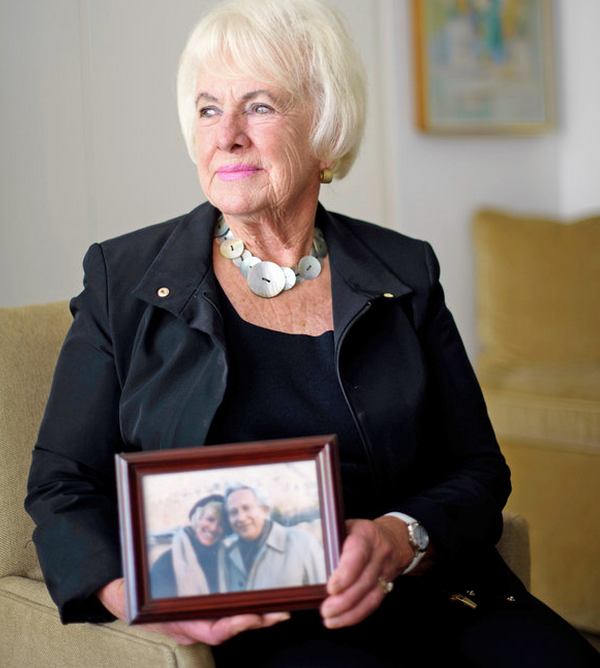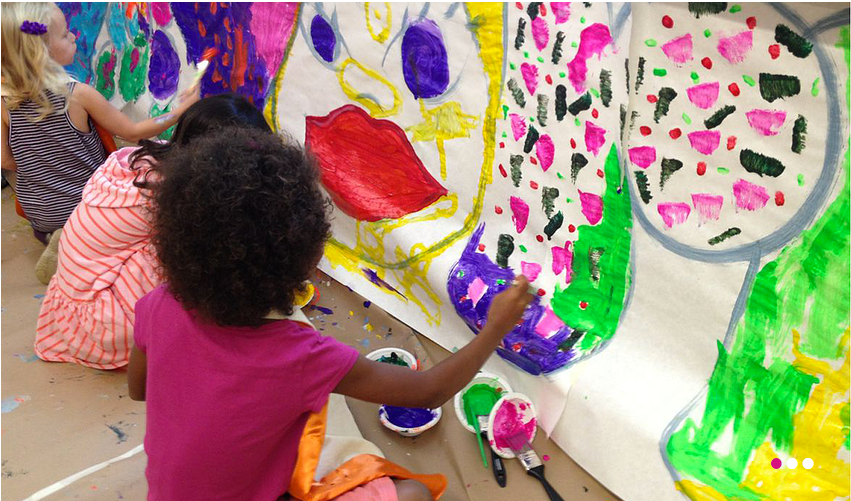What Would You Write If You Knew You Were Dying?
This talk was given at a local TEDx event, produced independently of the TED Conferences. Writing for the future. Recording conversations Rachel has a passion for honest conversations, and recognises the precious and precarious nature of life. She supports families when an adult develops cancer and helps those at the end of life to tell their story.
"When life runs out of tomorrow's, what you realize you've got is today" ~ Rachel L. Smith
Before the tomorrow's run out, use this opportunity today to think about what you will you say to your loved ones... And then say it...
Courageous Parents Network. An Invaluable Peer Community. Webresource.
"The mission and goals of Courageous Parents Network originate in my experience parenting my daughter Cameron following her diagnosis of Tay-Sachs at the age of six-months. Tay-Sachs is a rare and incurable genetic illness that always ends in early childhood death... But, in its way, it made everything that followed possible.
We did more than survive. Despite the profound sadness of watching our beautiful daughter lose all cognitive and physical abilities, Charlie and I were able to live fully into her short life. Despite the fear we had of losing her, we were prepared to accept, face and allow her pending death. And despite the Whoosh that poured from our life and our home when we watched her die, we were able to heal and, in time, emerge from the dark fog of grief that surrounded our family.
Courageous Parents Network is about bringing these phenomena to other families who are caring for children with serious illness. It is about providing parents with the skills, tools and virtual support they need to cope and adapt during their child’s illness journey so as to make the impossible possible".
Toward Evidence-Based End of Life Care. ~NEJM
"The disquieting patterns of end-of-life care in the United States have been well documented. In the last month of life, one in two Medicare beneficiaries visits an emergency department, one in three is admitted to an intensive care unit, and one in five has inpatient surgery. But one of the most sobering facts is that no current policy or practice designed to improve care for millions of dying Americans is backed by a fraction of the evidence that the Food and Drug Administration would require to approve even a relatively innocuous drug".
Child and Youth Grief Awareness: Resources.
Children's Grief Awareness Day.
"Children's Grief Awareness Day seeks to bring attention to the fact that often support can make all the difference in the life of a grieving child. It provides an opportunity for all of us to raise awareness of the painful impact that the death of a loved one has in the life of a child, an opportunity to make sure that these children receive the support they need".
Moody Cow Meditates: A playful way to introduce children to the power of meditation.
"It all started one stupid, rotten day when everything went wrong…
Peter the cow is having a BAD day. After missing the bus and wiping out on his bike he loses his temper and gets in trouble. To make matters worse all the other kids are teasing him, calling him Moody Cow. Peter’s day just seems to get worse until his grandfather comes over and teaches him how to settle his mind and let go of his frustration through a simple and fun exercise. This vibrant and funny children’s book is a playful way to introduce children to the power of meditation. With full color illustrations by the author, Moody Cow Meditates is a wonderful book for parents and children to share together.
Look for the Moody Cow Mind Jar App for iPhone and iPad, available in the App Store and iTunes!"
Finding the Words: How to talk with children and teens about death.
"It's hard to talk to children and teens about death and dying, particularly when someone they love has died or might die soon. Our instinct as caring adults may be to shelter them from painful truths. Yet as Dr. Wolfelt emphasizes, what kids need most is our honesty and our loving presence.
This practical and compassionate handbook includes dozens of suggested phrases to use with preschoolers, school-agers, and teenagers as you explain death in general or the death of a parent, a sibling, a grandparent, or a pet. Other chapters include possible words and ideas to draw on when you are talking to kids about a death by suicide, homicide, or terminal illness. At times grown-ups must also have very difficult conversations with dying children; this book offers guidance. A final chapter discusses how to talk with kids about funerals, burial, and cremation".
Inpatient Hospice Palliative Care Directory free via iOS and Android.
"Although some people hope to remain at home for the duration of their illness, many people find that admission to an inpatient setting can also be helpful. The inpatient care settings in the directory include palliative care units, residential hospices and dedicated palliative care beds within local hospitals. Inpatient hospice palliative care support includes 24 hour care, specialist pain and symptom management and psychosocial support for patients and families.
The map provides access to a directory which includes more information about inpatient hospice palliative care settings across Ontario. The list of facilities below may not be complete - there may be hospice palliative care settings which are not in the directory.
For contact information and details about the facility, click on a specific location. If you want more information, contact the hospice or palliative care program directly".
Best Endings. End of Life Planning Made Easier.
"It’s not just medical decision at end of life: we each have personal preferences. This often needs time and thought.
3 points to keep in mind:
- Thinking about your end-of-life can be exhausting and emotional.
- Thinking through what’s important often means having ‘Aha!’ moments about yourself.
- Determining personal choices at end of life can give you and yours peace of mind.
What’s important?
What to consider?
How much do I want to know?
You are The Boss"!
"My Directives". Now’s the time to get started.
Bearing Witness to Suffering. ~ Laura van Dernoot Lipsky
In this talk, Laura offers us a window into the cumulative toll that can occur when we are exposed to the suffering, hardship, crisis or trauma of humans, other living beings, or the planet itself. Held within a larger context of systematic oppression and liberation theory, we'll dive into what gets hard and how to work toward reconciling it both individually and collectively.
Advance Care Planning. Speak Up!
"Advance Care Planning is a process of reflection and communication. It is a time for you to reflect on your values and wishes, and to let people know what kind of health and personal care you would want in the future if you were unable to speak for yourself.
It means having discussions with family and friends, especially your Substitute Decision Maker – the person who will speak for you if you cannot speak for yourself. It may also include writing down your wishes, and talking with healthcare providers and financial or legal professionals"
Click on the above image to learn more.
The Way Forward: An Integrated Palliative Approach to Care.
Palliative Care Sooner for Patients But Also for Medical Professionals.
"Changing culture is a process. Awareness and understanding of palliative care is often limited, yet the benefits are discernible from better quality of life to care more consistent with patient preferences, to more recent data indicating improved survival. My experience with palliative medicine as a first-year medical student has made me realize how vital palliative care education could be for all medical students".
Complicated Grief: A Grief So Deep It Won’t Die.
" 'Adapting to loss is as much a part of us as grief itself,' said Dr. Shear, who directs the Center for Complicated Grief at the Columbia University School of Social Work. With complicated grief, 'something gets in the way of that adaptation, Something impedes the course of healing.’
By diagnosing complicated grief just six months after a death, he said, 'you’ll get a lot of normal people receiving treatment they don’t need,' including drugs. Dr. Shear also worries about “pathologizing” normal emotions. But when a woman remains unable to leave her home or answer the phone four years after the death of her adult son, as was true of one patient, something has clearly gone wrong.
‘If you’re worried about what you’re experiencing, if you’re not getting more engaged in life and people around you are saying, ‘Honey, stop wallowing in it,’ why not get some help?' Dr. Shear said. Complicated grief therapy, developed by her center, showed greater effectiveness among older adults than interpersonal psychotherapy in a clinical trial".
The Paternalism Preference — Choosing Unshared Decision Making.
"Consent is not merely the granting of permission but an exercise in choosing, and choice requires disclosure of a certain amount of information. How much information is adequate? Rather tautologically, as much as necessary to decide: 'The scope of the physician's communications to the patient must be measured by the patient's need, and that need is whatever information is material to the decision'.”
The Art of Healing.
"As the parents of Lulu and Leo, we know that art and nature played a critical role in their short, beautiful lives and in the life of our surviving daughter, Nessie. We believe every child on the planet deserves the deep engagement with art, nature, and creativity that our children had, not simply for the sheer joy and excitement it brings children but for the powerful tool it can be. We have felt the critical importance of creativity as a healing force and want to ensure that these creative outlets are available to all children and communities facing adversity.
We created the Lulu & Leo Fund to inspire, engage, educate, heal and grow the hearts and minds of children facing hardships, giving them lifelong passion, skills and — most importantly — hope".
Grief Through a Child's Eyes.
Click on the above image to watch "Grief through a Child's Eyes" an original video that takes you inside a children's bereavement camp.
Finishing Strong: Moments of Life Made Possible by Hospice.
"In September 2012, Bryan Caldwell was diagnosed with Hodgkin’s Lymphoma. A former professional football player in the NFL, rancher and surfer, he embodies strength. His wife, Krista, a nurse with Houston Hospice El Campo, even tells the story of how the morning before he was diagnosed, Bryan mowed the yard with a collapsed lung.
Six months into his fight with lymphoma, Bryan learned his cancer was unresponsive to medical treatments. He knew he wanted to spend his remaining time living without pain, at home, surrounded by all he loved. So he chose hospice care.
'Our whole philosophy is not to stay sitting, it’s to stay moving and to keep living each moment that comes along,' says Bryan. 'Hospice provides that golden opportunity for me, every single day. If I have the energy and I feel up to it, I’m getting out there'.”

















